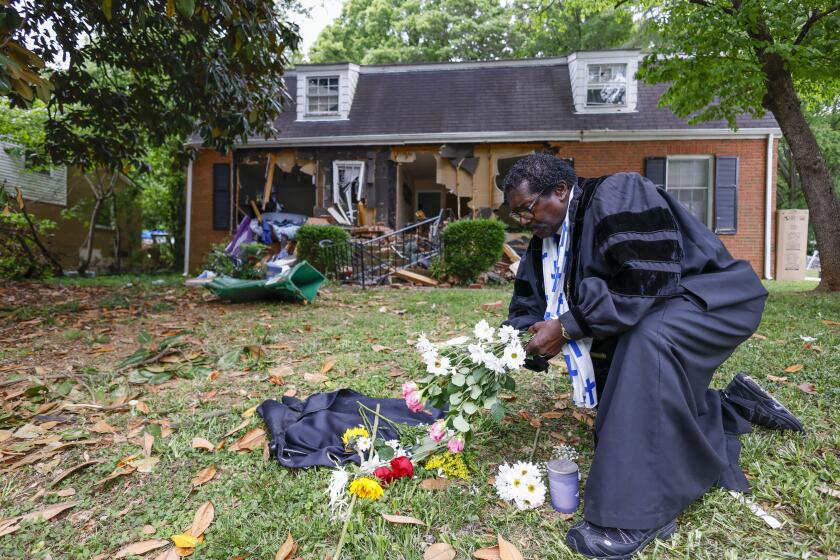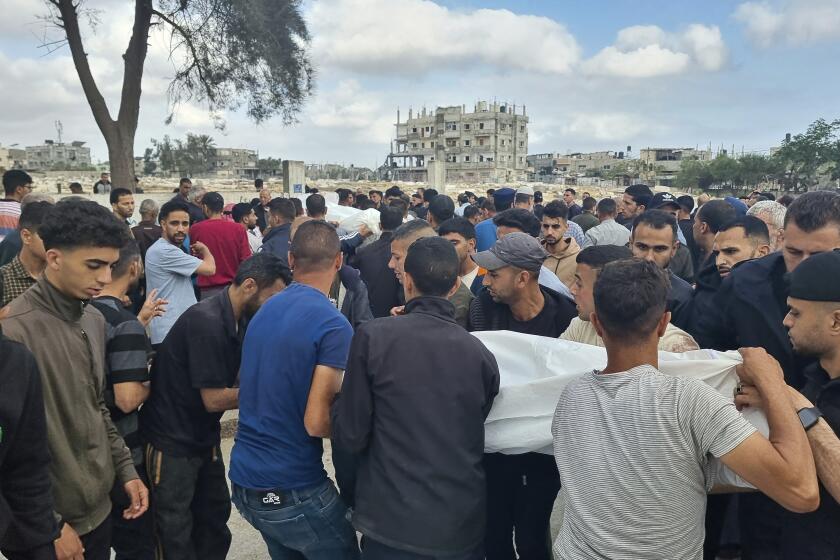School Lesson: Rat Finks Save Lives
Let’s bring back the tattletale. The snitch. The squealer. As I watched those wounded kids being loaded on to ambulances outside of their high school in Santee, Calif., their bare legs and bare feet at odd angles, I thought they looked like baby birds shot out of a tree. Yet unlike birds, those kids, some of them at least, had warning.
All the immediate news reports suggest that the shooting suspect, a high school student himself, had talked about shooting people beforehand. “Everybody can’t believe that he actually did it,” fellow student Josh Stevens recalled Monday afternoon. “He said he was just joking.”
Several media sources reported that Chris Reynolds, an acquaintance of the suspect, said, “I do regret that I didn’t do something because I should’ve stepped up even if it wasn’t true and stuff to take that precaution.” Reynolds continued, “If someone did die over there and stuff, that’s going to be haunting me for a long time.” Two people are dead; let’s hope it does haunt Reynolds for a long time. Blood might not have been shed if, to use the modern parlance, Stevens or Reynolds had staged an “intervention.” Or to use an older formulation, if they’d acted as their brother’s keeper. Or, to put it yet another way, if they’d informed on the shooter.
It’s a basic axiom of bad behavior that if one is permitted to talk openly about evil, then that evil act becomes more familiar, more acceptable, more possible. The essence of nursing a grudge, for example, is that when something is nursed, it gets stronger. Or to use a different analogy, it’s easier to treat cancer when it’s merely a few cells rather than a full-blown metastasized tumor. And so it is with many of the recent spate of school shootings, including Columbine; the killers made no secret of their intention, although they sometimes veiled their plan in alleged humor or fantasy.
But imagine what would happen if a troubled student starting talking about murder and a friend said to him in response, “Hey, you can’t do that, because the very idea, let alone the act, is evil. In fact, if you keep talking like that, I’m going to report you to the authorities.” What would happen, of course, is that the righteous kid would be accused of violating the threatener’s free speech, and of being a rat fink.
In effect, we’ve hit the mute button on warning signals and even cries for help. Troubled kids get the “space” they need to talk out their violent fantasies. And in the meantime, a California teenager got so in touch with his dark feelings that those feelings reached out and killed or wounded 15 others.
But wouldn’t a return to informing and supervising lead to “crying wolf” and even petty tyranny? Maybe, but it would also lead to kids spouting less venom, and that self-censorship might cut down on the cancerous progression to youth violence.
Absent that culture change among 50 million children and adults in the schools, the policy debate that will re-erupt in the wake of this shooting is going to miss the point. The political left, for example, will point to the 200 million guns in circulation and demand, yet again, more gun control. And the political right will point to the 200,000 acts of violence that the average kid sees on TV and demand, yet again, more media control.
Distantly down the road somewhere, one could imagine that either or both strategies might decrease school violence. But good results might come more quickly if everyone would learn from John Donne. He was the 17th century poet and theologian who said, “Never send to know for whom the bell tolls; it tolls for thee.” Donne wasn’t thinking about the dead, he was thinking about the living. “No man is an island,” he preached, and so “I am involved in mankind.” And so should we all be involved, because few evil acts come without warning. The tragedy comes when those warnings are ignored.
More to Read
Start your day right
Sign up for Essential California for news, features and recommendations from the L.A. Times and beyond in your inbox six days a week.
You may occasionally receive promotional content from the Los Angeles Times.






